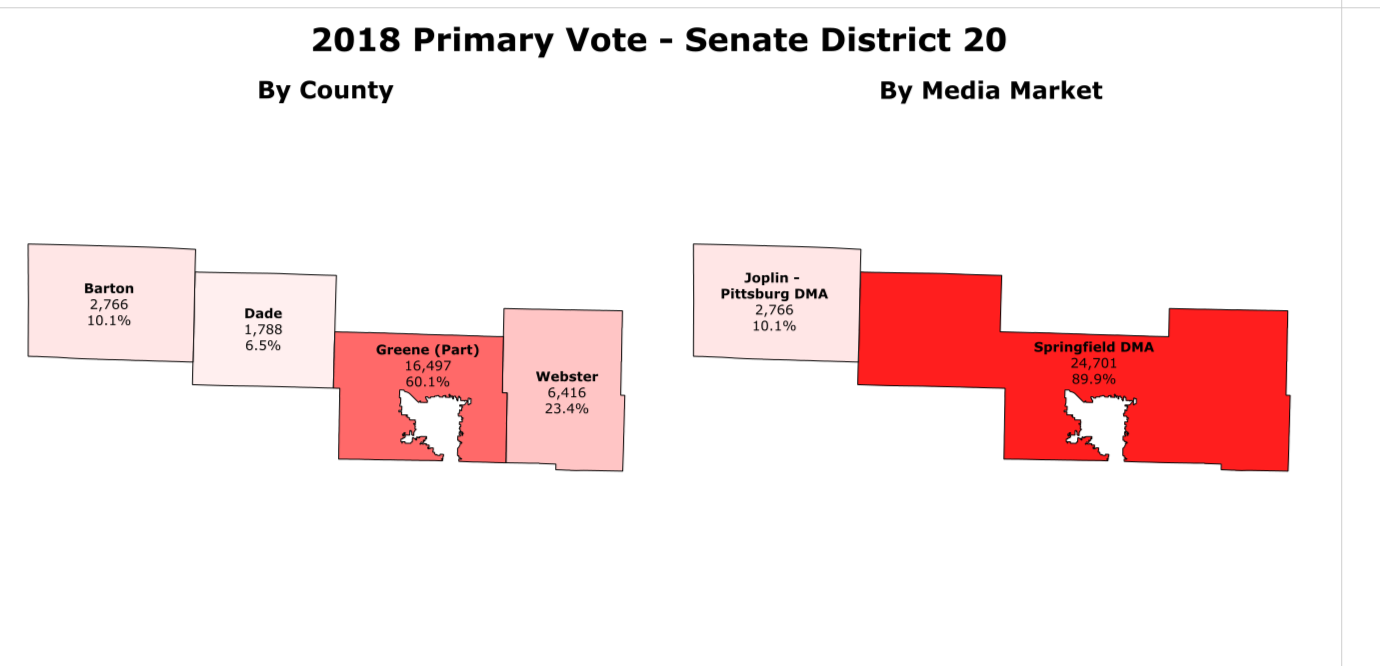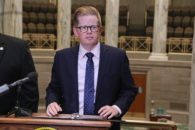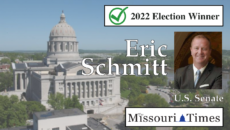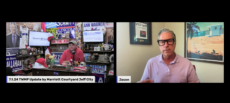Springfield, Mo. — Springfield’s backyard is up for grabs in 2022.
Senate District (SD) 20’s seat will be left for the taking as would-be incumbent Sen. Eric Burlison, R-Greene County, leaves to seek election to the U.S. House of Representatives.
The district, which is comprised mostly of the suburbs and rural areas around Springfield, has some areas that lean Democrat, but is on the whole strongly Republican.
Burlison won election to the Senate by a landslide in 2018, garnering nearly 74% of the vote. Six of the eight House Districts in Greene County are occupied by Republicans.
The district was heavily impacted by redistricting. Prior to redistricting SD 20 entirely encircled Springfield, including the Southern suburb of Nixa, Mo. within its boundaries.
The district now sprawls over the Northern part of Springfield’s metropolitan area, stretching as far west as to include Lamar, Mo., and as far east as to include Marshfield, Mo.
An interesting two-man race has developed in the Republican primary for SD 20. A proven legislator, Rep. Curtis Trent of Springfield, and a Springfield businessman with strong fundraising numbers, Brian Gelner, have thrown their hats into the ring to represent SD 20.
No Democrats are running in the district, according to the Missouri Ethics Commission, meaning the Republican primary in SD 20 essentially serves as the general election.
Rep. Curtis Trent
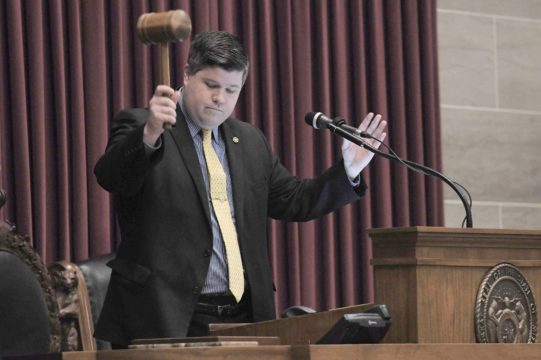
Trent starts off campaign season with political pedigree and connections to SD 20. Trent has polled well with area voters, garnering over 60% of the vote in his three successful elections to represent House District (HD) 133.
Trent will be glad to see that all of HD 133 falls within SD 20 even after redistricting.
Trent comes with six years of legislative experience in the House dealing with a variety of issues. Trent sees himself as a generalist with experience in various forms of legislation and thinks that would bode well for him as a Senator.
“It’s what I’ve already been doing, I’ve already touched on a wide range of issues. And so I think it’d be a natural feel from that viewpoint,” Trent said. “You have to deal with pretty much every issue in the Senate, far more than you do in the House.”
Trent served as the Chairman of the General Laws Committee in the House for two years, giving him familiarity with a wide range of issues.
Trent has focused on that generalist approach in his platform, citing his previous policy and legislation to let voters know where he stands. Though his main platform focus is business.
“I want to make sure that Missouri has a favorable business environment, through things like port reform and tax reform, make sure that we’re able to attract good, family-supporting jobs to our area. Both manufacturing and agriculture,” Trent said. “I grew up on a small family farm. My dad was a mechanic. So I grew up in a small farm-small business environment. I know what it’s like for families to struggle to make ends meet. And I know how hard inflation and other problems from (Washington) D.C. are affecting Missouri families.”
“I believe that we should use the Missouri Senate to mitigate the worst effects of D.C. mismanagement. And that’s the perspective I want to bring to Missouri’s Senate,” he added.
Trent relayed the sentiment of wanting to work with everyone in the Republican caucus as well as getting away from the personal attacks that have plagued the upper chamber in recent sessions.
“I try to be a consensus builder. I try to be someone who’s respectful and listens to and engages in dialogue with other individuals who have different views,” Trent said. “I think that people like that style, and would like to see more of that kind of style.”
Trent is expected to do well in grassroots campaigning given his history in the area. However, Trent was slightly outraised by Gelner during the second quarter, despite getting significantly more support from Political Action Committees (PAC).
Trent received 16 contributions from PACs in the second quarter, according to the Missouri Ethics Commission. This dwarfs Gelner’s six PAC contributions in the same time period.
Regardless of what campaign contributions might say, Trent thinks he connects to the average voter in SD 20 very easily.
“In my experience, going door to door, and talking to people and seeing the makeup of the district, I think the district is very conservative,” Trent said. “I think that is the voter base that you have to prevail with in order to win — the folks that are very conservative, they’re very concerned about the direction of the country.”
“I share all those concerns. That’s my record in the House, fighting on all those issues. I think I’m a perfect fit politically for the community concerns and the values of the people of the 20th district.”
Trent’s Campaign Finances
Second Quarter Contributions: $51,075.00
Debts: None
Cash on Hand: $78,265.00
Biggest Contributor: Ozark Gateway Leadership PAC, $2,500
417 PAC Second Quarter Contributions: $38,750.00
417 PAC Cash on Hand: $41,140.49
Brian Gelner
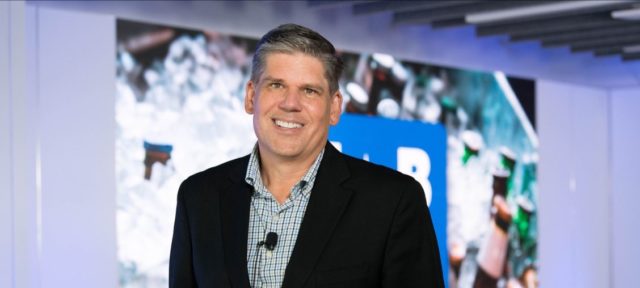
Gelner is the political outsider in this race. A successful businessman, Gelner is the owner and president of Heart of America Beverage and Crown Distributing, both businesses specialize in beverage distribution.
Gelner was galvanized to join the SD 20 race after growing unhappy with dysfunction in politics. Gelner specifically highlighted the dysfunction in the Missouri Senate during a contentious Spring session, characterized by bickering between the Senate’s conservative caucus and the rest of the Republican supermajority.
“Politics is so dysfunctional right now, (Washington) D.C. is a complete disaster. Jeff City is getting worse and worse,” Gelner said. “Obviously, this year in Jefferson City, the Senate was unfunctional. At best.”
“I do tell everyone, there’s a 0% chance I’ll join the conservative caucus — not because I’m not conservative — but I just think they were self-serving and caused a lot of problems this year. That’s not good for Missouri, in the long term,” he added.
Gelner brings a multi-faceted platform, focusing on workforce development, tax reform, rural infrastructure and education.
“The 20th district has a lot of rural parts to it, I think we need to be looking at broadband expansions, I think that would be something that would help those people out. Obviously, access to health care is another,” Gelner said. “In these rural communities, if you have access to health care, if you have broadband, you have the opportunity to get a lot of people moved out there.”
Gelner views the telehealth system as a great opportunity to provide equitable health care access to rural constituents.
“I think telehealth is a big opportunity in the Springfield area. Mercy and Cox are the two big hospital systems. And I’ve talked to both of them about how they’re trying to access more telehealth — that could be through schools, it could be through clinics, or other things. I think that’s an opportunity for sure,” Gelner said.
“We need to realize there are no silver bullets on any of these answers. These are all very complex problems we have. So I think we need to be looking at a lot of different things and see what works and not be afraid to try something new. And if it doesn’t work, then obviously we readjust to go back from there,” he added.
Gelner views himself as a people person, and thinks he can work across the aisle to achieve many of his legislative goals. He thinks his experience as the Chairman of the National Beer Sellers Association has given him the ability to listen to different ideas and accomplish goals cohesively.
“Things like workforce development, I think that would go across both party lines,” Gelner said. “We need more investments in the OTCs of the world, two-year schools, trade schools, a whole bunch of different organizations like that.”
The people-person approach may be working out for Gelner. He’s consistently out-raised his competition despite getting less PAC support. A glance at Gelner’s second quarter campaign finance filing shows many more individual contributions than Trent, though his biggest monetary contributions still come from PACS.
“I’ve done well in fundraising and I was told early on that grassroots was my competitor’s strength … I feel like our grassroots has really come on the last month,” Gelner said. “We’ve got the door knocking going full-blown, and a lot of people want to help me in a lot of different directions besides just money. So I do feel really excited that — I feel like I’ve closed that gap, if not taking the lead in grassroots.”
Gelner’s Campaign Finances
Second quarter contributions: $56,226.00
Debts: None
Cash on Hand: $236,997.16
Biggest Contributor: eight-way tie, four PACS, four individual donors, $2,400 each
Missouri Common Sense PAC Second Quarter Contributions: $31,000.00
PAC Cash on Hand: $118,476.00
All campaign finance information courtesy of the Missouri Ethics Commission
Featured Image Courtesy of @Missouri_Mapper on Twitter

I’m a journalist hailing from the Detroit area. I love to tell investigative stories with a focus on everyday people.
You can contact me by email at matthew@missouritimes.com

